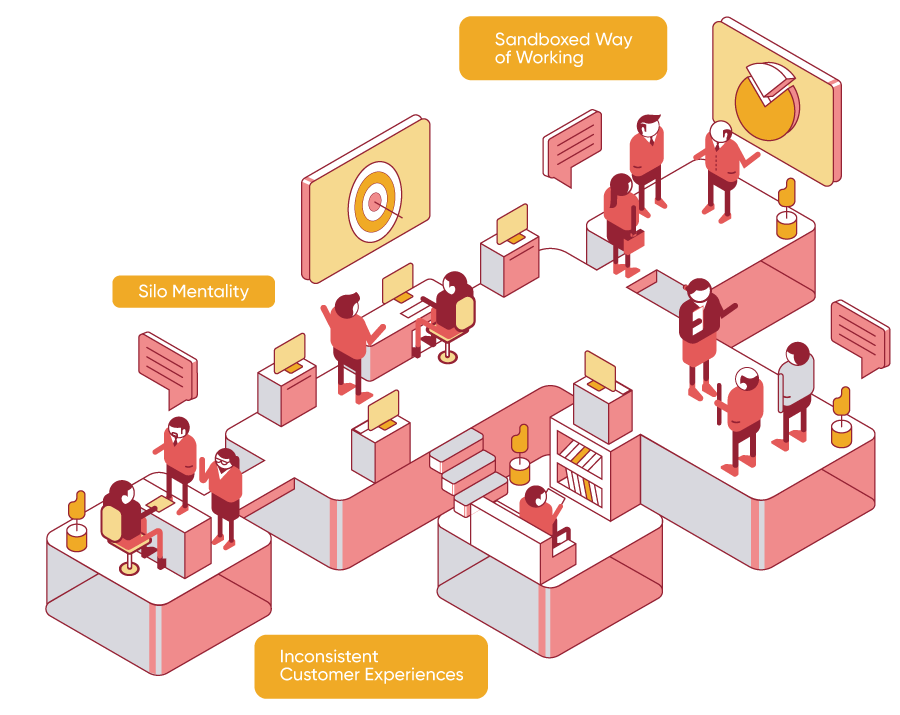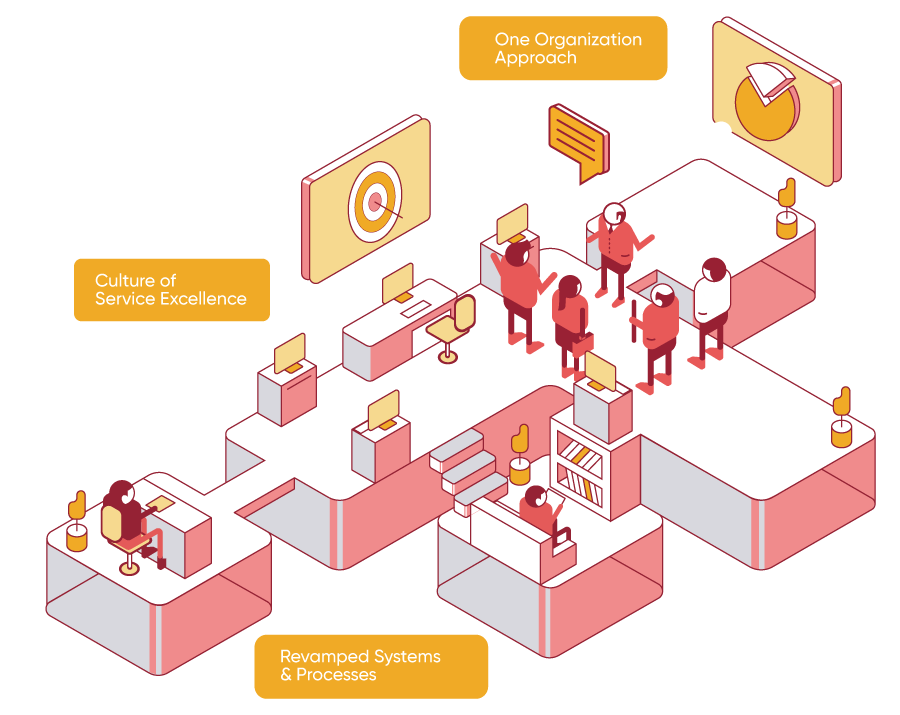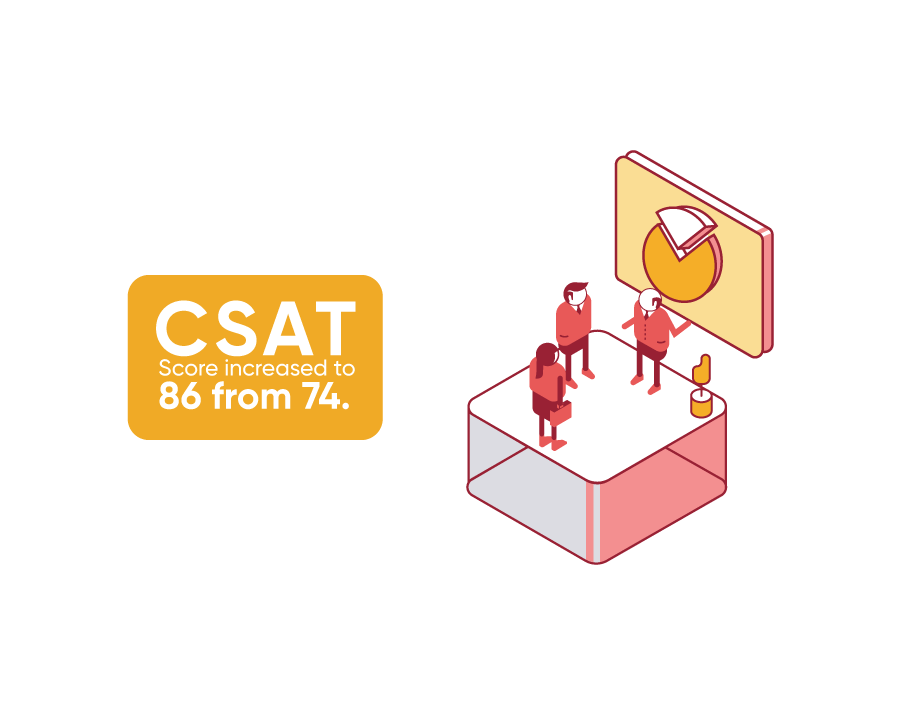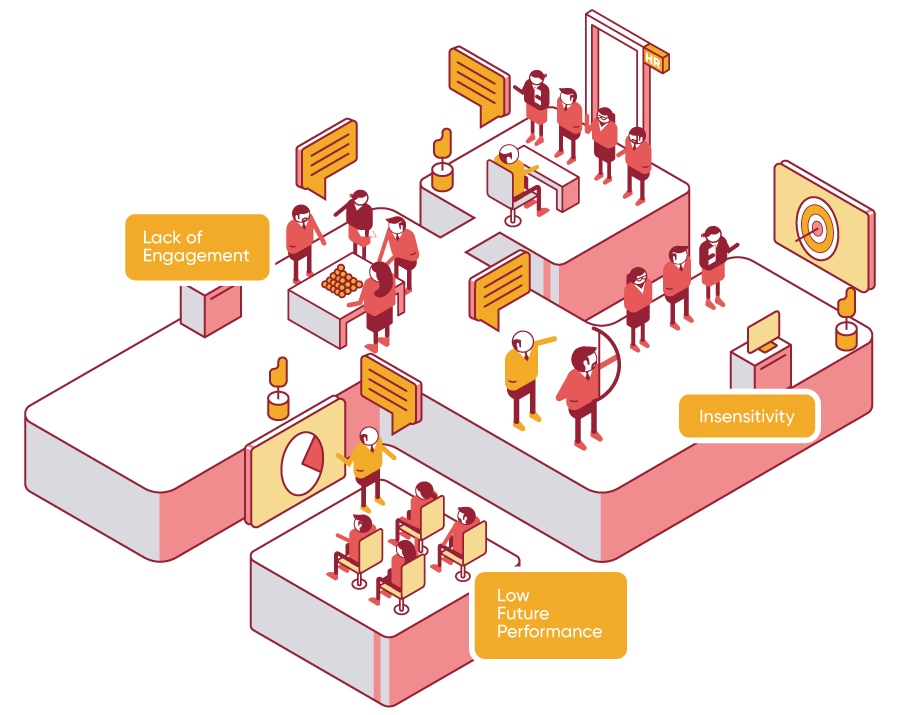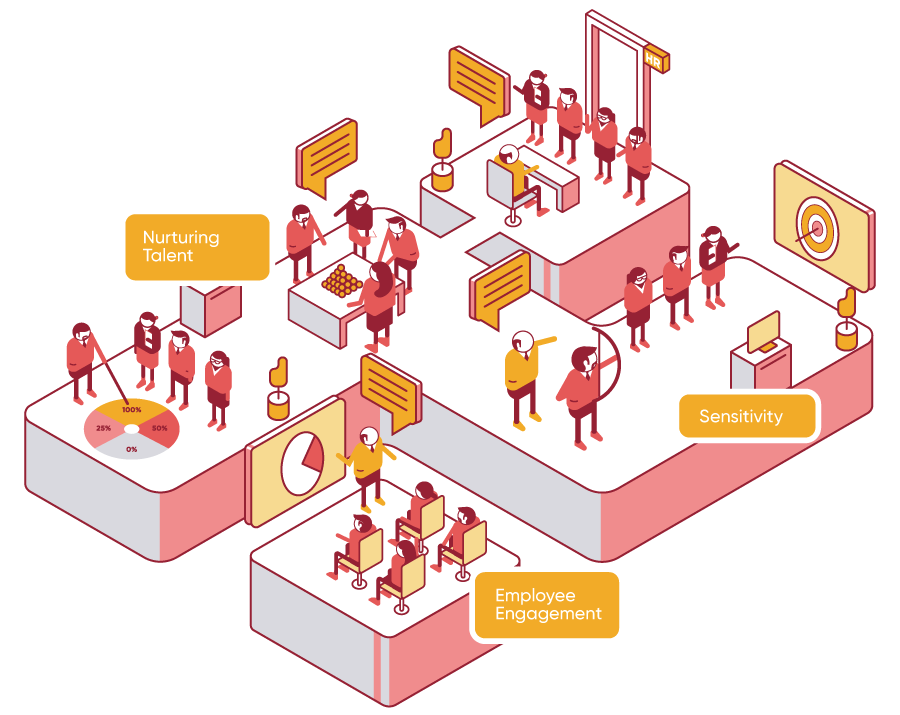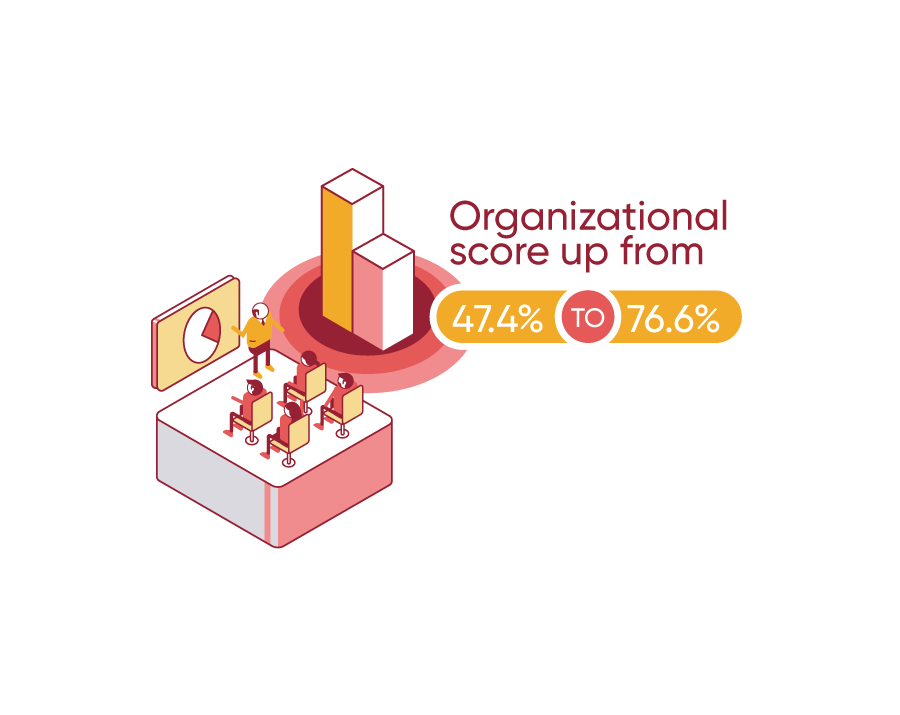Creating a measurable change in individual competencies and organisational capability.
At Chrysalis, Results-Based Learning™ is about driving measurable impact through concentrated capability building using the existing ecosystem in an organisation. To create the right impact on organisational system, we define the strategic outcomes, success metrics, critical behaviours along with learning objectives. This creates an alignment between the learning strategy and business strategy, thereby bringing in consequential shifts that over time creates a monumental impact – this is what Results-Based Learning™ is rooted in.
How we helped build a culture of service excellence
in Financial Services
One of the largest players in the Financial Services space was struggling with driving consistent customer experience across their various business units. The units were working in silos and the employees had an inward focus only on their processes. They did not see how one process fed into the other and how the entire process flow impacted the customer.
First, we used our Learning Consulting practice to identify process, understanding, and behaviour gaps in the entire service delivery cycle. Then, our Performance Improvement practice created a common philosophy for service, brought it to life through mantras that were inculcated across the Organisation, and institutionalized servicing capability rooted in the reality of their business processes.
There was an awakening of service mindset across all levels in the Organisation. This led to the breakdown of functional and business silos. The entire organisation took a cohesive approach to make customer-centricity a part of the DNA. The CSAT scores of the Organisation went up to 86 from 74 within 12 months.
How we empowered managers to build talent
in Insurance
A leading Organisation in the Indian Insurance market, despite its strong business fundamentals and exponential growth, scored very low in two of its Organisational DNA anchors - Nurturing Talent and Sensitivity. This posed serious questions on employee engagement and its future impact on the Organisation’s performance.
There were two aspects of our solution: Performance Consulting and Organisational Culture. First we tangiblized Organisational culture into behavioural indicators across all levels of managers. We then created a transformative journey which gave managers a toolkit to drive extraordinary performance while staying engaged with their people.
The managers of this Organisation played their part in building capabilities of their teams. Stories of performance benchmarks being broken, started flooding in. At the commencement of the learning journey, the Organisational score on the identified behavioural indicators was 47.4% and within a period of 8 months, it went up to a remarkable 76.6%.
